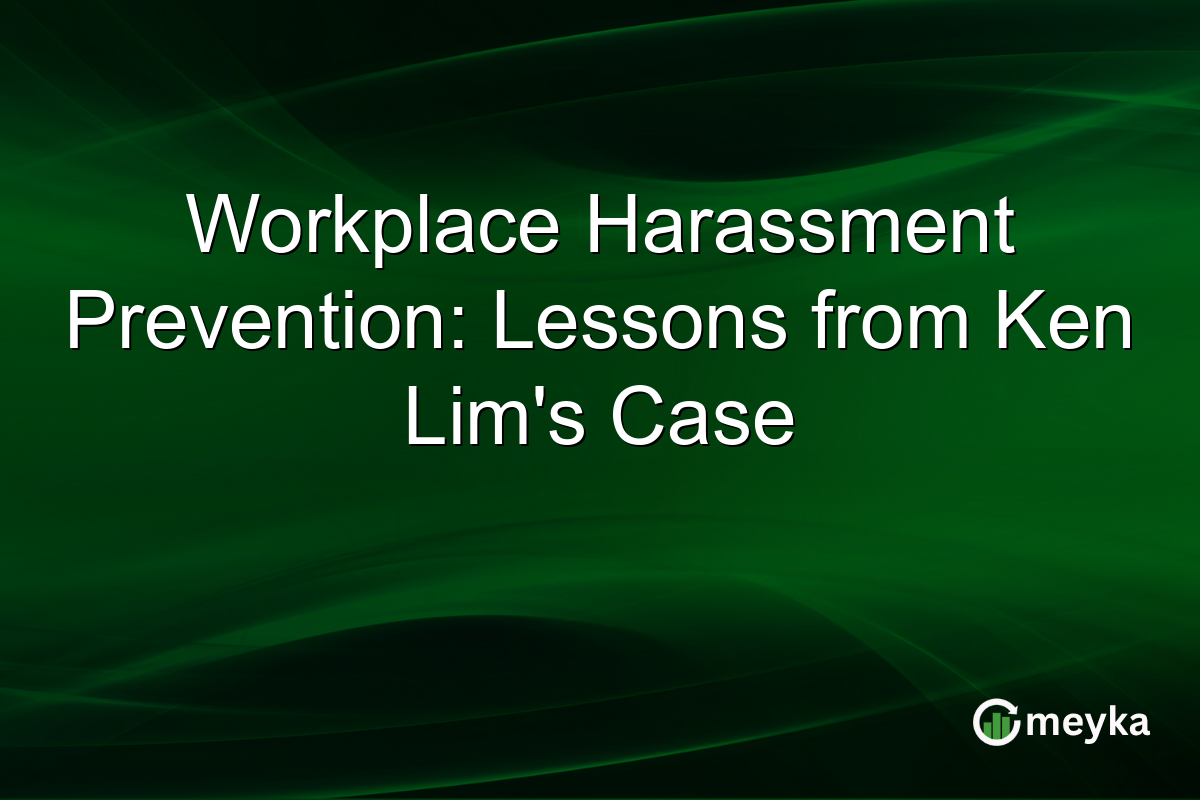Workplace Harassment Prevention: Lessons from Ken Lim’s Case
Workplace harassment is a serious issue that continues to challenge corporate environments worldwide. In Singapore, this topic has gained renewed attention following the sentencing of Ken Lim, a former Singapore Idol judge, to 13 months in jail for molesting a colleague. This high-profile case emphasizes the critical need for companies to adopt robust corporate governance measures to ensure employee safety and prevent harassment at all levels.
Understanding the Ken Lim Sentencing
Ken Lim’s case serves as a stark reminder of the potential risks employees face if inappropriate behaviors go unchecked. Charged and sentenced to 13 months’ imprisonment for molesting a 25-year-old woman, as reported by The Star, highlighted deficiencies in workplace conduct monitoring. Source
This highlights the urgent need for better frameworks that prioritize employee safety. Companies must ensure transparent processes that support victims and deter potential offenders.
The Role of Corporate Governance
Strong corporate governance is crucial in safeguarding employees against harassment. This involves implementing clear policies, creating awareness programs, and establishing confidential reporting systems. Effective governance not only deters misconduct but also builds a culture of respect and safety.
The Ken Lim incident exemplifies the consequences of inadequate governance. By highlighting the importance of preventative measures, firms can mitigate risks and foster a positive workplace environment. Failure to address these issues could result in reputational damage and legal consequences.
Ensuring Employee Safety
Employee safety must be a priority in any organization. This includes both physical safety and emotional well-being. Effective measures include regular training sessions on workplace ethics and creating safe channels for reporting misconduct.
Ken Lim’s case revealed lapses that should serve as lessons. Proactively addressing complaints and taking decisive action against offenders are steps necessary to maintain trust within the workforce. Corporate policies should be regularly reviewed and updated to adapt to evolving legal standards and employee needs.
Investing in a Respectful Workplace Culture
Building a respectful workplace culture requires continuous investment. Companies should engage leadership at all levels to endorse and practice ethical behavior. By fostering open dialogue about harassment, organizations can improve employee morale and productivity.
This approach not only reduces the risk of incidents like Ken Lim’s but also positions companies as responsible employers. As public scrutiny increases, organizations must demonstrate their commitment to maintaining a dignified and respectful workplace for all employees.
Final Thoughts
Ken Lim’s sentencing underscores the critical importance of effective workplace harassment prevention mechanisms. Companies in Singapore and beyond must prioritize strong corporate governance and proactive employee safety measures to protect their workforce. By fostering a supportive environment and implementing clear policies, organizations can mitigate risks, enhance their reputation, and ensure that all employees feel safe and respected.
Ultimately, investing in these measures not only prevents harassment but also enhances overall workplace culture. Companies that prioritize these values can attract and retain top talent, driving long-term organizational success.
FAQs
Ken Lim’s case highlights the need for strong governance, transparent reporting mechanisms, and continuous employee education to prevent workplace harassment. Companies should implement clear policies and create a safe environment for reporting misconduct.
Companies can ensure safety by creating robust reporting systems, conducting regular training, and fostering an open dialogue about harassment. Engaging leadership to model ethical behavior is crucial for building trust and respect within the organization.
Corporate governance provides the framework for ethical behavior and accountability. It involves setting clear policies, promoting transparency, and holding individuals accountable for misconduct, which deters harassment and protects employees.
Disclaimer:
The content shared by Meyka AI PTY LTD is solely for research and informational purposes. Meyka is not a financial advisory service, and the information provided should not be considered investment or trading advice.






